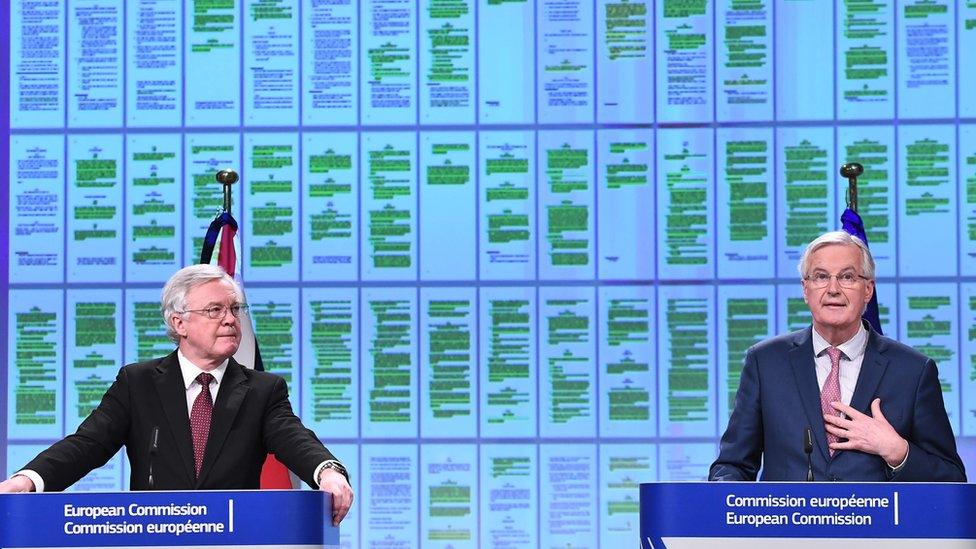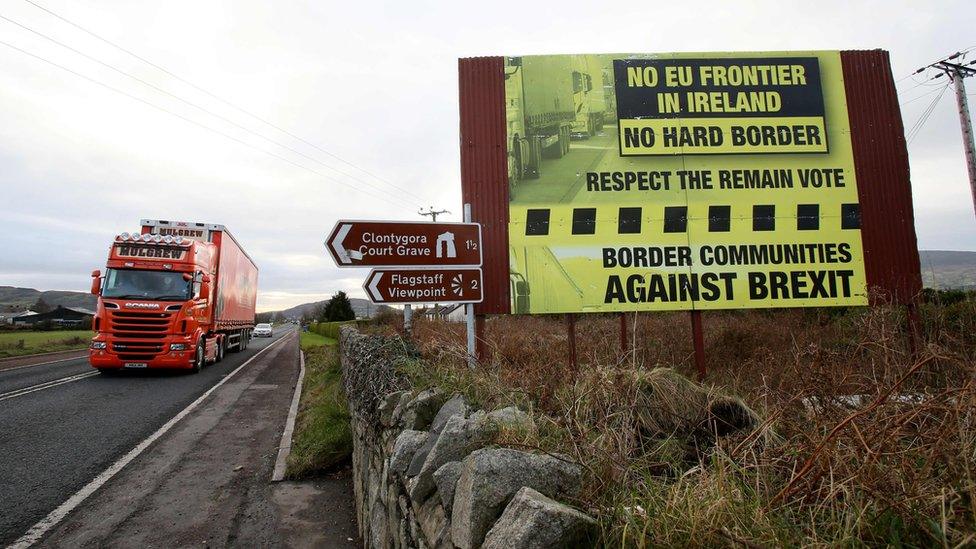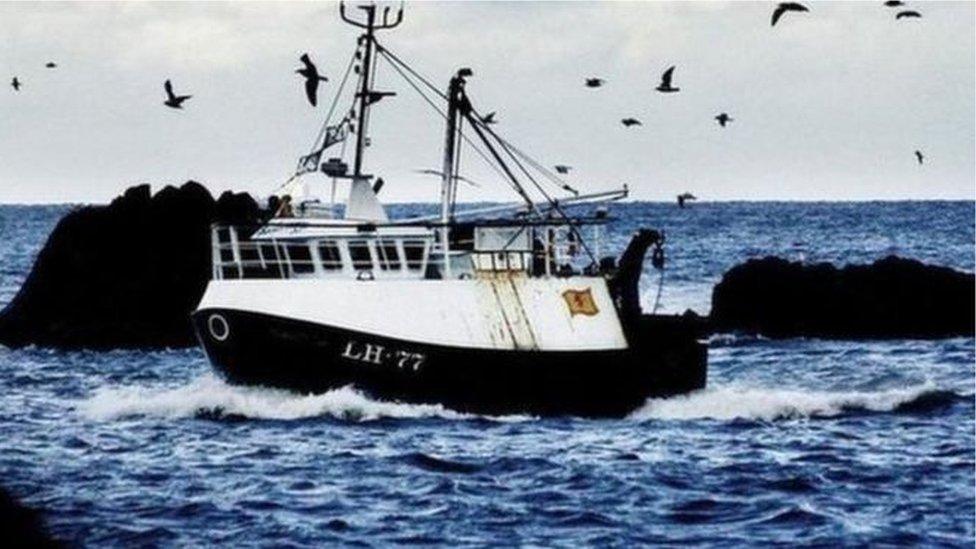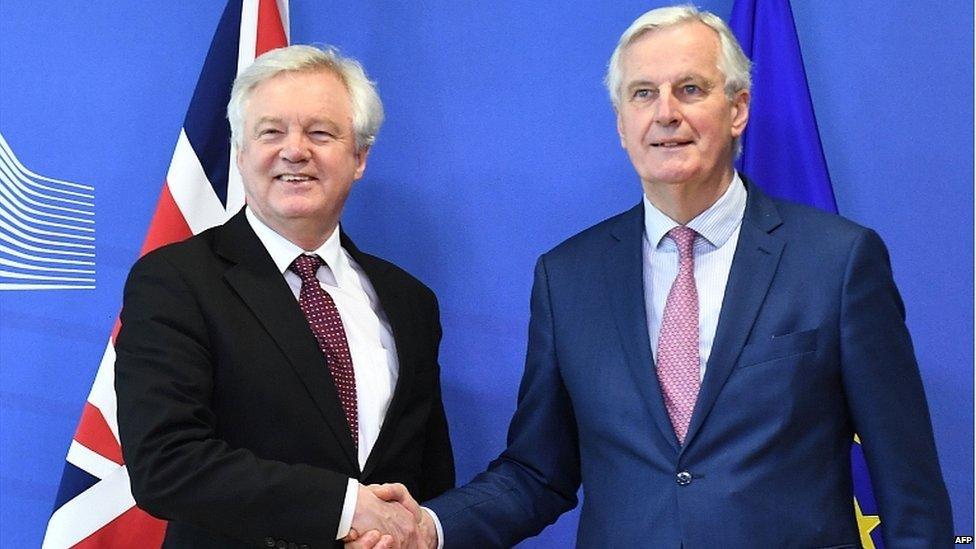Brexit talks: UK-EU agree on transition but obstacles remain
- Published

David Davis and Michel Barnier highlighted their areas of agreement in green
Spring is definitely in the air in Brussels with the thaw spreading even to Brexit negotiations.
After months of frosty talks and bad-tempered press conferences, the UK and the EU's chief Brexit negotiators seemed upbeat and at ease with one another.
This, said the EU's Michel Barnier, was a defining moment.
Indeed, Phase Two of Brexit negotiations - the so-called transition or, as the UK prefers to call it, implementation period - has just been agreed and will likely be signed off by EU leaders when they come to Brussels for a summit at the end of the week.
This means that after the UK leaves the EU on 29 March next year, it will remain a member of the club in all but name (and some other exceptions) for a further 21 months.
Now the much-awaited Phase Three can start, in which the EU and UK get down to details about trade and other areas of their future relationship post-Brexit.
So what magic suddenly turned Brexit negotiators' frowns and foot-stamps into smiles of acquiescence on Monday?
The answer is a mixture of good, old-fashioned, hard into-the-night-negotiations and political expediency.
It is not only the UK that is desperate for a green light on the transition period.
EU businesses have been lobbying their respective national leaders for more clarity, more certainty and, crucially, more time - to get their Brexit ducks in a row.
Uncertainty is costly for all concerned.

The question of the Irish border remains a sticking point
But there is a huge grey cloud in all this spring sunshine.
In a moment of eye-catching colour today in the often grey Brexit press proceedings, Michel Barnier and David Davis presented a slide highlighting in colour the areas of agreement (in green) and disagreement.
At first glance there was a sea of green covering a whole host of potentially tricky issues.
But, once again, the key sticking points are clear to see - and they are big ones:
Governance, which means the role of the European Court of Justice in policing post-Brexit EU-UK relations
The Irish border
Now, under the terms of the Brexit deal, and as we've heard so many times before, "nothing is agreed until everything is agreed".
The transition deal may come to nought if the EU and UK fall out over the wider withdrawal agreement.
And even if the transition deal does go ahead, not everyone is as happy as David Davis is today.
Some Brexiteers claim the transition agreement renders the UK a "vassal state" - an EU law-taker but no longer a lawmaker at the decision-making table.
Also, as in Phase One of the Brexit agreement when it came to the divorce issues of citizens' rights and the so-called Brexit bill, the UK government has made considerable concessions to the EU in order to secure the transition period.
Finally, and glaringly, Monday's press conference was a clear admission by David Davis, that, contrary to the assertion of many of his fellow-cabinet members and of the prime minister herself who have claimed in the past that these Brexit negotiations will end in a completed EU-UK trade deal, this will not be the case.
Instead, Mr Davis and Mr Barnier noted, the transition period - if it goes ahead - will be time used by negotiators to continue hammering out the details of future relations between the UK and the European Union.
- Published19 March 2018
- Published19 March 2018

- Published30 December 2020

- Published19 March 2018

